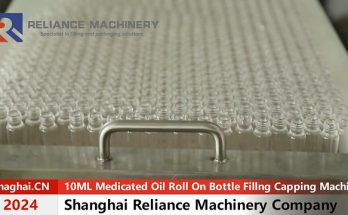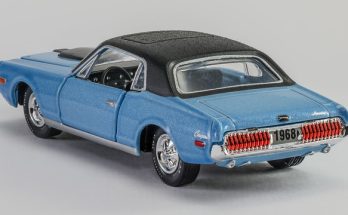5 Types of Food Packing Machine
Food packaging machines are vital for the production of quality products in the food industry. They offer speed, accuracy, and versatility, and help manufacturers meet customer demands.
Flow wrap packaging machines provide an airtight seal that protects the food from contamination. This helps to preserve the food’s taste and texture and extend its shelf life.
Case packing machines
Case packing machines play a vital role in food production lines. They automate the process of grouping products into cases, which helps to ensure efficient transportation and storage. This type of packaging helps protect the quality of the product and reduces the risk of breakage or contamination during transportation. In addition, it also helps streamline warehousing and inventory management processes.
IMA offers several different types of case packing equipment for food and beverage applications. For example, the CombiPlast is a case erecting and bag placing system that can pack loose or bundled products into a case or display box. The machine can pack 15 cases per minute and is available in a variety of sizes. The system can be equipped with various accessories such as date printers, conveyor belts, nitrogen filling devices, chain bag devices, and sealing and cutting with puncher devices.
In addition to increasing productivity, specialized food packaging machinery also allows for better employee morale. When workers are safe, they can focus on their responsibilities more easily and can build strong professional relationships with their coworkers. This boosts recruitment and retention rates, which can help companies meet demand and increase revenue. Moreover, specialized packaging machines are easier to operate and maintain than traditional machinery. They also require less downtime and can handle a wider range of products.
Horizontal flow wrap machines
Horizontal Flow Wrap Machines are used for wrapping a variety of products. They can package anything from muffins to electrical outlet covers, cards to magazines, sandwiches to frozen pizzas, and more. These machines can adjust to the specific needs of each product and production volume, making them a great choice for food industries or other companies that require individually wrapped items.
The Horizontal Flow Wrapping Machine is a state-of-the-art packaging solution that is versatile, adaptable, and efficient. This type of machine creates a bag from a single film coil using two cross-weldings and one longitudinal welding, and offers a range of packaging sizes and speeds. It also includes a servo-drive side seal horizontal flow shrink wrapper that is ideal for soft or sticky products, and multipacks.
During operation, the system delivers your product to an infeed food packing machine conveyor while the film tube is formed around it. Then, it moves to the cutting head where the fin seals are created and cut from the surrounding wrapped product. Once the end seals are complete, the finished package will move onto a discharge conveyor where it will be removed from the machine. The machine’s user-friendly interface makes it easy to operate and monitor production. It also helps you maintain your product’s shelf life and improves overall operational efficiency. It also ensures that the product is presented in a professional manner that enhances its marketability.
Form-fill-seal machines
A form-fill-seal machine transforms flat packaging film into a shelf-ready bag that can be filled and sealed. The process is fast, efficient and conserves valuable plant floor space. It also reduces the cost of packaging materials and eliminates the need for manual handling, boosting productivity and hygiene standards on the production line.
VFFS machines work in three key stages, forming the bag, filling it with the product and sealing it securely. They are versatile enough to handle a wide range of packaging materials and bag styles, including gusset bags, pillow pouches, doy-style stand-up bags and flat bottom bags. They can even be equipped with tear notches and hole punches to accommodate different requirements and increase the security of a package.
These flexible packaging machines are ideal for liquid food products, such as juice, sauces and toppings. They can also be used to pack dry products, such as powders and granulates. They can be equipped with Sense&Seal product detection and Premiumseal sealing technology to ensure the safety of the packaged goods. They can also be fitted with accessories, such as printing units and labelers, to meet your specific requirements.
Medical packaging is another area where a form-fill-seal machine can be useful. Designed to suit the needs of the pharmaceutical and medical industries, a medical VFFS machine can be equipped with features such as tamper-evident seals, air flushing, polyethylene seal assembly, pivoting pouch support, bag squeezers to reduce headspace and provisions for code dating/printing devices.
Filling machines
If your business produces bottled foods, you need a filling machine to ensure that your products have the right amount of product. These machines come in a variety of formats and styles, so you can find the right one for your product. They can also incorporate capping and labeling functions.
For bottles that contain liquid-based food, a pump or piston filling machine is ideal. These machines can handle a range of product viscosities and are available in both single-head and multi-head configurations to accommodate various production speeds. They can be integrated into existing lines for a fully automated process.
Another popular type of filling machine is a vacuum bagging system. This type of packaging machine creates plastic bags, fills them with your product, and seals them in one step. This is a highly efficient way to package your products and reduce your energy consumption.
These machines are great for jars or tins that hold liquid-based products like jams, preserves, and sauces. They use a piston or pump filling mechanism that ensures accurate, consistent filling. This type of packaging machine is typically incorporated into a larger production line and can incorporate table band saw capping, labelling, or shrink wrapping processes. Choosing the best food packing machine for your business depends on many factors, including the type of product you produce and your desired production speed.

